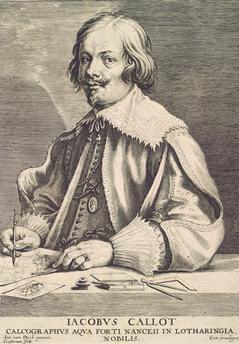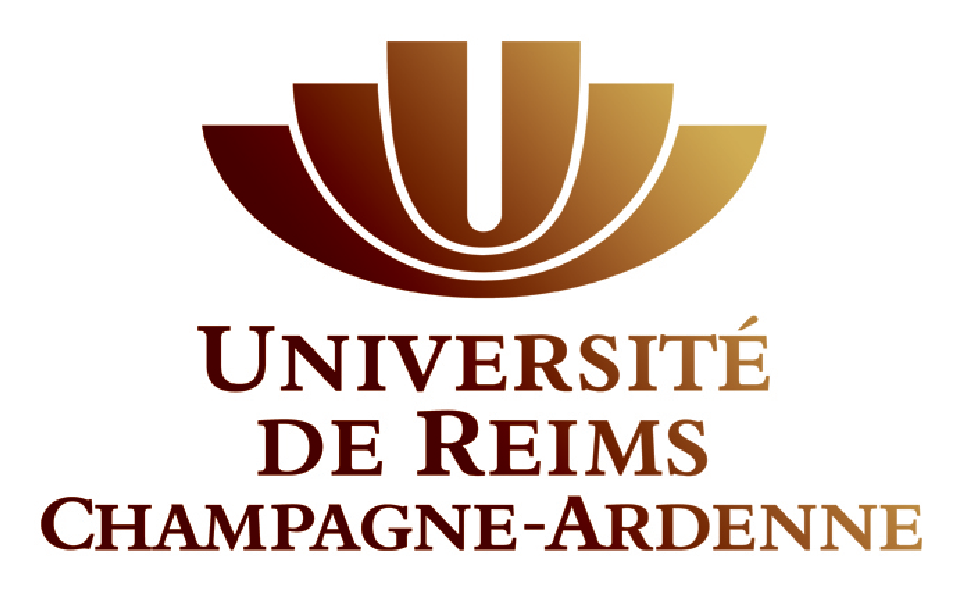|
Michel Picard (writer)
Michel Picard (born 15 August 1931 in Nancy) is a French professor, writer and literary critic. Biography A novelist, essayist, academic, Michel Picard published at a very young age (under pseudonym) two novels at Gallimard and collaborated regularly with the ''Nouvelle Revue française''. He was born in Nancy, where he studied and taught, first at the École Normale d'Institutrices, then at the Faculty of Letters. Agrégé de Lettres, he supported in January 1971 at the Sorbonne a Doctorate thesis which aroused interest and controversy, both for the chosen work, that of Roger Vailland, and for the method adopted. Hence a defense account in ''Le Monde'', the rapid publication of the thesis, one or two violent attacks and several complimentary articles (including two pages by Étiemble in ''Le Nouvel Observateur''). Elected a professor the same year at the University of Reims, he spent thirteen years as director of the Department of French. In 1986, he published ''La lecture ... [...More Info...] [...Related Items...] OR: [Wikipedia] [Google] [Baidu] |
Michel Picard, Juillet 2018
Michel may refer to: * Michel (name), a given name or surname of French origin (and list of people with the name) * Míchel (nickname), a nickname (a list of people with the nickname, mainly Spanish footballers) * Míchel (footballer, born 1963), Spanish former footballer and manager * ''Michel'' (TV series), a Korean animated series * German auxiliary cruiser ''Michel'' * Michel catalog, a German-language stamp catalog * St. Michael's Church, Hamburg or Michel * S:t Michel, a Finnish town in Southern Savonia, Finland People * Alain Michel (other), several people * Ambroise Michel (born 1982), French actor, director and writer. * André Michel (director), French film director and screenwriter * André Michel (lawyer), human rights and anti-corruption lawyer and opposition leader in Haiti * Anette Michel (born 1971), Mexican actress * Anneliese Michel (1952 - 1976), German Catholic woman undergone exorcism * Annett Wagner-Michel (born 1955), German Woman Internationa ... [...More Info...] [...Related Items...] OR: [Wikipedia] [Google] [Baidu] |
Feuille D'or De La Ville De Nancy
The Feuille d'or de la ville de Nancy is a literary award, awarded on the occasion of the at Nancy. It rewards a Lorraine author or whose work concerns Lorraine. List of laureates * 2016: Hélène Gestern, ''L'Odeur de la forêt'', Arléa * 2015: Carole Martinez, ''La terre qui penche'', Gallimard * 2014: Benoît Duteurtre, ''L'ordinateur du Paradis'', Gallimard * 2012: David Haziot, ''Le roman des Rouart'', Fayard * 2011: Éric Reinhardt, ''Le Système Victoria'' Bibliography *''La Collaboration, 1940-1944'' (Paris: Armand Colin, 1964) *''Les élections présiden ..., ''Les Miroirs de Jupiter'' * 1986: Claude Kévers-Pascalis, ''Crésus'' References {{Reflist External links Le Livre sur la place Feuille d'Or de la ville de Nancy Awards established in 1986 Lorraine 1986 establishments in France ... [...More Info...] [...Related Items...] OR: [Wikipedia] [Google] [Baidu] |
1931 Births
Events January * January 2 – South Dakota native Ernest Lawrence invents the cyclotron, used to accelerate particles to study nuclear physics. * January 4 – German pilot Elly Beinhorn begins her flight to Africa. * January 22 – Sir Isaac Isaacs is sworn in as the first Australian-born Governor-General of Australia. * January 25 – Mohandas Gandhi is again released from imprisonment in India. * January 27 – Pierre Laval forms a government in France. February * February 4 – Soviet leader Joseph Stalin gives a speech calling for rapid industrialization, arguing that only strong industrialized countries will win wars, while "weak" nations are "beaten". Stalin states: "We are fifty or a hundred years behind the advanced countries. We must make good this distance in ten years. Either we do it, or they will crush us." The first five-year plan in the Soviet Union is intensified, for the industrialization and collectivization of agriculture. * February 10 – Official ... [...More Info...] [...Related Items...] OR: [Wikipedia] [Google] [Baidu] |
French Literary Critics
French (french: français(e), link=no) may refer to: * Something of, from, or related to France ** French language, which originated in France, and its various dialects and accents ** French people, a nation and ethnic group identified with France ** French cuisine, cooking traditions and practices Fortnite French places Arts and media * The French (band), a British rock band * "French" (episode), a live-action episode of ''The Super Mario Bros. Super Show!'' * ''Française'' (film), 2008 * French Stewart (born 1964), American actor Other uses * French (surname), a surname (including a list of people with the name) * French (tunic), a particular type of military jacket or tunic used in the Russian Empire and Soviet Union * French's, an American brand of mustard condiment * French catheter scale, a unit of measurement of diameter * French Defence, a chess opening * French kiss, a type of kiss involving the tongue See also * France (other) * Franch, a surname * Fre ... [...More Info...] [...Related Items...] OR: [Wikipedia] [Google] [Baidu] |
21st-century French Essayists
The 1st century was the century spanning AD 1 ( I) through AD 100 ( C) according to the Julian calendar. It is often written as the or to distinguish it from the 1st century BC (or BCE) which preceded it. The 1st century is considered part of the Classical era, epoch, or historical period. The 1st century also saw the appearance of Christianity. During this period, Europe, North Africa and the Near East fell under increasing domination by the Roman Empire, which continued expanding, most notably conquering Britain under the emperor Claudius (AD 43). The reforms introduced by Augustus during his long reign stabilized the empire after the turmoil of the previous century's civil wars. Later in the century the Julio-Claudian dynasty, which had been founded by Augustus, came to an end with the suicide of Nero in AD 68. There followed the famous Year of Four Emperors, a brief period of civil war and instability, which was finally brought to an end by Vespasian, ninth Roman emper ... [...More Info...] [...Related Items...] OR: [Wikipedia] [Google] [Baidu] |
21st-century French Novelists
The 1st century was the century spanning AD 1 (Roman numerals, I) through AD 100 (Roman numerals, C) according to the Julian calendar. It is often written as the or to distinguish it from the 1st century BC (or BCE) which preceded it. The 1st century is considered part of the Classical era, epoch, or History by period, historical period. The 1st century also saw the Christianity in the 1st century, appearance of Christianity. During this period, Europe, North Africa and the Near East fell under increasing domination by the Roman Empire, which continued expanding, most notably conquering Britain under the emperor Claudius (AD 43). The reforms introduced by Augustus during his long reign stabilized the empire after the turmoil of the previous century's civil wars. Later in the century the Julio-Claudian dynasty, which had been founded by Augustus, came to an end with the suicide of Nero in AD 68. There followed the famous Year of Four Emperors, a brief period of civil war and inst ... [...More Info...] [...Related Items...] OR: [Wikipedia] [Google] [Baidu] |
Jacques Callot
Jacques Callot (; – 1635) was a baroque printmaker and draftsman from the Duchy of Lorraine (an independent state on the north-eastern border of France, southwestern border of Germany and overlapping the southern Netherlands). He is an important person in the development of the old master print. He made more than 1,400 etchings that chronicled the life of his period, featuring soldiers, clowns, drunkards, Gypsies, beggars, as well as court life. He also etched many religious and military images, and many prints featured extensive landscapes in their background. Life and training Callot was born and died in Nancy, the capital of Lorraine, now in France. He came from an important family (his father was master of ceremonies at the court of the Duke), and he often describes himself as having noble status in the inscriptions to his prints. At the age of fifteen he was apprenticed to a goldsmith, but soon afterward travelled to Rome where he learned engraving from an expatri ... [...More Info...] [...Related Items...] OR: [Wikipedia] [Google] [Baidu] |
Nancy, France
Nancy ; Lorraine Franconian: ''Nanzisch'' is the prefecture of the northeastern French department of Meurthe-et-Moselle. It was the capital of the Duchy of Lorraine, which was annexed by France under King Louis XV in 1766 and replaced by a province, with Nancy maintained as capital. Following its rise to prominence in the Age of Enlightenment, it was nicknamed the "capital of Eastern France" in the late 19th century. The metropolitan area of Nancy had a population of 511,257 inhabitants at the 2018 census, making it the 16th-largest functional urban area in France and Lorraine's largest. The population of the city of Nancy proper is 104,885. The motto of the city is , —a reference to the thistle, which is a symbol of Lorraine. Place Stanislas, a large square built between 1752 and 1756 by architect Emmanuel Héré under the direction of Stanislaus I of Poland to link the medieval old town of Nancy and the new city built under Charles III, Duke of Lorraine in the 17th ... [...More Info...] [...Related Items...] OR: [Wikipedia] [Google] [Baidu] |
University Of Reims
The University of Reims Champagne-Ardenne (; URCA), also known simply as the University of Reims, is a public university based in Reims, France. In addition to the main campus in Reims, the university has several campuses located throughout the Grand Est region, in Châlons-en-Champagne, Charleville-Mézières, Chaumont, and Troyes. History Original university The University of Reims was established in 1548,Mark W. Konnert, ''Local Politics in the French Wars of Religion'', Ashgate Publishing, Ltd., 2006, p. 52. after the Cardinal of Lorraine met with Pope Paul III. The 'Collège des Bons-Enfants' Catholic school thus became a university, teaching the arts, theology, law and medicine. The university was closed in 1793 during the French Revolution, and reemerged in the 1960s. Modern university The Faculty of Science (1961), the Literary University College (1964), the University College of Law and Economics (1966), Reims University Technology Institute (1966), the Faculties ... [...More Info...] [...Related Items...] OR: [Wikipedia] [Google] [Baidu] |





